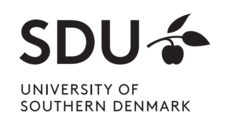MSc in Supply Chain Digitalisation

Learn to optimize supply chains with artificial intelligence and machine learning
The Master's programme in Supply Chain Digitalisation is the first in Denmark to focus on cutting-edge technologies such as machine learning, artificial intelligence, simulation, and data science. The programme aims to drive the digitalisation of supply chains with a holistic approach, promoting economic efficiency, sustainability, and high security.
This master's programme provides you with a deep understanding of advanced methods and technologies essential for the digitalisation of supply chains, focusing on data-driven decision-making and quantitative approaches. As industries seek smarter, more efficient operations, you will learn to develop and implement innovative solutions that optimize performance and promote sustainability across supply chains.
Through a curriculum built on close collaboration with industry partners, you will engage with real-world, hands-on projects that reflect the current challenges in the digital transformation of global supply chains. It combines technical expertise with business insights, preparing you for a career in both established companies and entrepreneurial ventures driving digital supply chain transformation.
Project based and research based study environment
You will become part of an international, study-based, and collaborative learning environment where you work in project groups. Together with your fellow students, you will take responsibility for planning and completing the project on time. Project topics are usually provided by companies, and we emphasize solving real-world problems where challenges related to digitalisation play a critical role. In your final semester, you will work on your master’s thesis, often in collaboration with a high-tech company.
Na studia magisterskie mogą kandydować wszyscy, którzy ukończyli studia licencjackie lub inżynierskie (studia I stopnia), studia magisterskie lub studiują na ostatnim roku studiów I-stopnia. Studia, które planujesz powinny mieć zbliżony profil do tych obecnych lub ukończonych, ponieważ w procesie rekrutacji kluczowa jest ich zgodność programowa.
- Wykaz punktów ECTS – osoby, które są jeszcze w trakcie studiów, muszą załączyć wypis punktów ECTS, w którym będzie wykazane, jakie przedmioty były realizowane na studiach oraz ile punktów za nie otrzymano.
- Dyplom ukończenia studiów licencjackich lub inżynierskich – jeśli jesteś absolwentem wyższej uczelni, nie potrzebujesz wypisu, wystarczy załączyć dyplom ukończenia studiów wraz z suplementem (w języku angielskim lub oryginał z tłumaczeniem)
Course description - należy przygotować dokument, zbierający cały sylabus ze studiów licencjackich. Takie sylabusy najczęściej są do pobrania na stronie uniwersytetu. Należy je przetłumaczyć na język angielski (można samodzielnie) i złączyć w jeden dokument. Warto też zapytać w dziekanacie uczelni, czy nie dysponują wersją angielską.
Oficjalna skala oceniania Twojej uczelni - możesz dostać taki dokument w dziekanacie Twojej uczelni lub skonstruować samodzielnie. W obu przypadkach dokument powinien zawierać pieczątkę dziekanatu.
- TOEFL IBT - 88. For validation, we need to receive a score report directly from the test center. To select University of Southern Denmark as recipient, use the code 7969. Please choose "other - department not listed". If you have already taken the test, you can still make a request for the test center to forward the report. Please inform us once you have made such a request.
- IELTS - 6.5
You can apply if you hold a relevant degree in Science or Engineering. To be considered, your degree must include a minimum of:
- 5 ECTS Supply Chain Management, Operations Management, Operations Research, Production Planning & Control, Smart Manufacturing, or similar
- 10 ECTS Statistics, Data Science, Data Analytics, or similar
- 5 ECTS Programming
As part of your application, you must fill in and upload a form in which you state which subjects from your education you consider relevant in relation to the requirements mentioned above. Download the form here (.pdf).
It may be possible to supplement your degree with a maximum of 30 ECTS in order to fulfill the academic admission requirements. A maximum of 15 ECTS can be supplemented as part of a conditional admission, with a maximum of 10 ECTS completed before study start as summer school, and a maximum of 5 ECTS completed alongside the first semester of the Master’s degree programme.
Here is a list of potential job titles you could pursue with this degree:
- Supply Chain Manager
- Operations Manager
- Logistics Manager
- Data Analyst
- Machine Learning Engineer
- AI Specialist -
- Production Planner
- Inventory Manager
- Sustainability Manager
- Digital Transformation Consultant
- Business Analyst
- Process Improvement Specialist
- Project Manager
- Quality Assurance Manager
- Procurement Manager
These roles will enable you to apply your expertise in machine learning, artificial intelligence, data science, sustainability, and security to drive value and innovation across various sectors.
